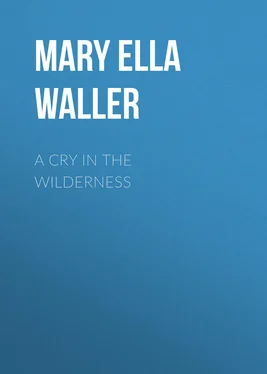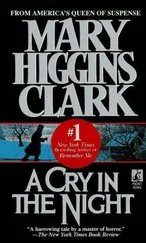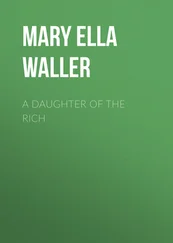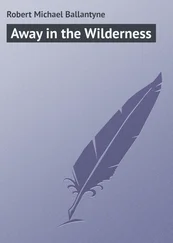Mary Waller - A Cry in the Wilderness
Здесь есть возможность читать онлайн «Mary Waller - A Cry in the Wilderness» — ознакомительный отрывок электронной книги совершенно бесплатно, а после прочтения отрывка купить полную версию. В некоторых случаях можно слушать аудио, скачать через торрент в формате fb2 и присутствует краткое содержание. Жанр: foreign_prose, foreign_antique, на английском языке. Описание произведения, (предисловие) а так же отзывы посетителей доступны на портале библиотеки ЛибКат.
- Название:A Cry in the Wilderness
- Автор:
- Жанр:
- Год:неизвестен
- ISBN:нет данных
- Рейтинг книги:4 / 5. Голосов: 1
-
Избранное:Добавить в избранное
- Отзывы:
-
Ваша оценка:
- 80
- 1
- 2
- 3
- 4
- 5
A Cry in the Wilderness: краткое содержание, описание и аннотация
Предлагаем к чтению аннотацию, описание, краткое содержание или предисловие (зависит от того, что написал сам автор книги «A Cry in the Wilderness»). Если вы не нашли необходимую информацию о книге — напишите в комментариях, мы постараемся отыскать её.
A Cry in the Wilderness — читать онлайн ознакомительный отрывок
Ниже представлен текст книги, разбитый по страницам. Система сохранения места последней прочитанной страницы, позволяет с удобством читать онлайн бесплатно книгу «A Cry in the Wilderness», без необходимости каждый раз заново искать на чём Вы остановились. Поставьте закладку, и сможете в любой момент перейти на страницу, на которой закончили чтение.
Интервал:
Закладка:
Jan. 8, 1907. What luck for me! I don't have to buy a book. The whole Library is mine for the asking. How I have read these last three years! As if I could never read enough; read while I 've been standing and eating; read before getting up and long after I have been in bed. It has been a hunger and thirst for this kind of food—and there has been enough of this ! Enough!
Feb. 1908. I am studying French now daily, and beginning Latin by myself, for I want to take the higher examinations for the cataloguing department. That will mean more pay and the prospect of a vacation sometime.
March 16, 1908. How I gloat like a miser over my savings-bank book! Just one hundred and seventy-five dollars to my credit. I have visions of—oh, so much in ten years!
May, 1908. I was at the Metropolitan this morning. I feel rich when I realize that all this treasure-house is open to me—is mine for the entering. I am taking the whole museum, room by room. A year's work on Sundays.
August, 1908. I have not seen fit to change my method of expenditure since I entered the Library; I have continued to spend as I spent when I had four dollars a week, with the exception that I allow, necessarily, a little more for clothing.
For housing:—
Room, $1.50 a week.
Fuel and oil in winter, $ 0.75
Oil in summer, .26
Now for my art:—
I have allowed for my food exactly one dollar a week and allow the same now. I go down to the Washington Market early in the morning. I revel in the sight of the fresh vegetables, of the flowers and fruits. The market-people know me now, and many a gift-flower I have brought back with me to my room, and several times a pot of herbs or spring bulbs; now and then a few sprays of parsley or thyme. These I look upon as my commission! Without leaving the market, I buy a loaf of bread for ten cents; a knuckle of veal, or a beef bone, a pound and a half of sausages, or a pound of salt pork, for fifteen cents; I vary my purchases from time to time that I may have variety. Ten cents for vegetables—I vary these, also, as much as possible; these, with a pound of rice, nine cents, a half a pound of butter, eighteen cents, and a quart of beans for another ten cents, give me satisfying combinations. When eggs are cheap I vary this diet with them, lettuce and bacon. I buy things that are cheapest in their season. In summer, I drop out all meat and substitute milk. I allow myself one pound of sugar a week; no tea, no coffee; the city water is the only thing of which I can have enough free. With what is left of my hundred cents,—for in my art it is the cents with which I reckon, not dollars,—I buy fruit in its season, a bit of cheese, sometimes even a Philadelphia squab! At times, they are cheaper than meat in the Market. In the season I can get one for ten cents.
I have an extra treat when I buy that last, for the old man at the poultry stall, who draws the chickens and various fowl, is a model from the old Italian masters. An Italian himself, he speaks little English, wears a skull cap and, to my delight, looks like one of Fra Angelico's saints. I learn all this from the Metropolitan Museum, and apply it in the Washington Market!
At times I haunt the fish stalls, select good sea food for a change, and am rewarded by the play of color on the zinc counters—the mottled green of live lobsters, the scarlet of boiled ones, the silver and rose of pompano, the pomegranate of salmon. I have stood by the half hour to watch the slow-moving turtles, the scuttling crabs in the tanks. I have good friends throughout the Market—men and women. They confide in me at times, like the cod-and-hake man, dealer in dried fish, who told me he had "a girl once down on Cape Cod". He seemed relieved by this confession. He was serving me at the time, and his two hundred or more pounds, his red face and his cordiality were delightful. My butter-egg-and-cheese man also confides to me that he is a commuter; has purchased a home on the instalment plan; has three children, and his wife runs a private laundry.
What remains of the four dollars after the weekly bills are paid, I lay aside for clothes. I make my own shirt waists. It took me eleven months to earn a good skirt of brown Panama cloth; but it has lasted me four years.
I think I live well, considering ; but, in living thus, there is no denying I cross the bridge of mere sustenance every day, and am obliged to burn my bridge behind me! I don't like it—but am thankful for work. I 'm not beneath adding to my reserve fund five cents at a time.
Dec. 18, 1908. They 're nice boys, the theological students—but queer, some of them. I 've watched different sets of them come and go during these six years. Two or three have attempted to make a little love to me; a few have adopted me—so they said—for their sister. I 'm forgotten with their graduation and their flitting! One or two are really friends; they 're younger than I, of course, and I can patronize and quiz them.
Johnny is my favorite. There is little theological nonsense about him, and there is an inquisitive disposition to see New York and make the most of his time here. He 's from the north part of the state; likes books, likes people, likes a good time, whenever he can get it, on his limited income to which he adds by helping the basement barber two days in the week, canvassing for books in the summer, and on Saturdays waiting on the patrons of a book stall in a corridor of one of the big hotels.
Taken altogether, Johnny is a man who has not as yet found his calling, although he is anchored for the present, through affection for his father, to "Chelsea" and a career that, at times, irks him. We 've had many a good talk about this matter. I tell him he 's not dragging anchor, but weighing it.
I like to see New York through Johnny's eyes—Adirondack eyes, keen, honest, and blue; they take in all the metropolitan sights, from the Hippodrome, to the Bowery vaudevilles and the Cathedral of St. John.
It's fun to "do" the city with him, with no expense except car fares.
Jan. 1909. Johnny and I stood outside the Metropolitan Opera House this evening, to see the hodge-podge of carriages and automobiles arrive with their contents: the women who toil not, neither do they spin anything except financial webs for men's undoing. It was a queer sight! Hundreds of women passed me. As I looked at them, I saw the same long, pointed, manicured nails, the same jewelled fingers, the incurving fronts, the distorted busts, the lined and rouged faces—like those I loathed so when I first came to this city. I asked myself, "What's the difference between the two kinds? Is it money alone that makes it?"
"But are there two kinds?" I was asking myself again, when Johnny, who has an eye for good clothes on man and woman, called my attention to a woman's opera cloak. It was worth a man's ransom. From a deep yoke of Russian sable depended the long cape of pale green satin covered with graduated flounces, from eight to fourteen inches deep, of Venetian point. And taking in all this, I saw—
Well, I don't know that I dare to set down in words, even for my own enlightenment, what I saw in that Vision. But, suddenly, all the rich robings, opera cloaks, clinging gowns of silk, velvet and chiffon, the diamond tiaras, the jewelled necklaces, the French lingerie even—all dropped from every one in that procession; and there, on a New York sidewalk, in the harsh glare of electric lights, amidst the hiss and cranking of their automobiles, the clank of silver-mounted harness and the champing of bits, the shouts and calls and myriad city noises, I saw them for what they really are:—women, like unto all other women; women made originally for the mates of men, for mothers, for burden-bearers, with prehensile hands to grasp, then lead and uplift, and so aid in the work of the world.
Читать дальшеИнтервал:
Закладка:
Похожие книги на «A Cry in the Wilderness»
Представляем Вашему вниманию похожие книги на «A Cry in the Wilderness» списком для выбора. Мы отобрали схожую по названию и смыслу литературу в надежде предоставить читателям больше вариантов отыскать новые, интересные, ещё непрочитанные произведения.
Обсуждение, отзывы о книге «A Cry in the Wilderness» и просто собственные мнения читателей. Оставьте ваши комментарии, напишите, что Вы думаете о произведении, его смысле или главных героях. Укажите что конкретно понравилось, а что нет, и почему Вы так считаете.












